Deakin University Lecturer Helen Young Accuses ‘The Lord Of The Rings’ Author J.R.R. Tolkien Of Racism, Anti-Semitism, And Orientalism

Deakin University Lecturer Helen Young recently accused The Lord of the Rings author J.R.R. Tolkien of racism based on his condemnation of Adolf Hitler and the Nazis as well as his depictions of Orcs and Dwarves.

Young wrote an article in The Conversation titled “The Rings of Power is suffering a racist backlash for casting actors of colour – but Tolkien’s work has always attracted white supremacists.”
In the article under the subheading “Why do racists like Tolkien and Middle-Earth?” Young takes issue with Tolkien’s statements denouncing the Nazis and apartheid writing “but this is not the same as being anti-racist or pro-equality.”
She goes on to cite Letter 45 that he wrote to his son Michael in June 1941. She writes, “His condemnation of Hitler, he wrote in the same letter, was for ‘ruining, perverting, misapplying, and making forever accursed, that noble northern spirit, a supreme contribution to Europe, which I have ever loved, and tried to preserve in its true light.'”
Young then asserts, “The comment shows that he believed that some people were essentially different to and better than others. This notion is foundational to racism.”
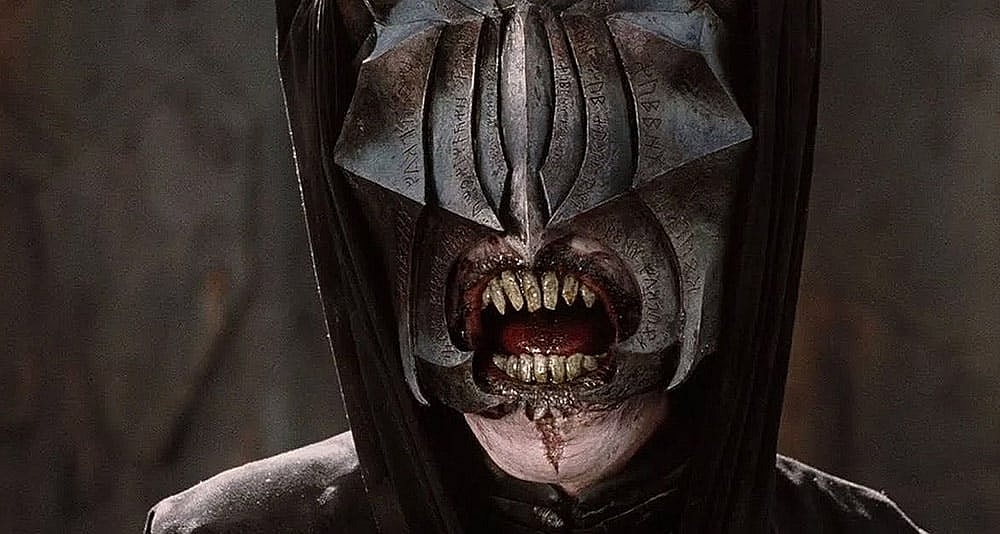
First off, acknowledging that some people are different to others and some people are better than others is not foundational to racism. It is a common sense observation that anyone can make. Not everyone is Michael Jordan. Michael Jordan clearly had a talent for basketball and he excelled in the sport becoming arguably the greatest basketball player to play the game.
Michael Jordan is clearly different from Helen Young, and he’s most definitely better than her at basketball and probably at a host of other things including business as well. People being different and some being better at some things compared to others is simply a fact of life.
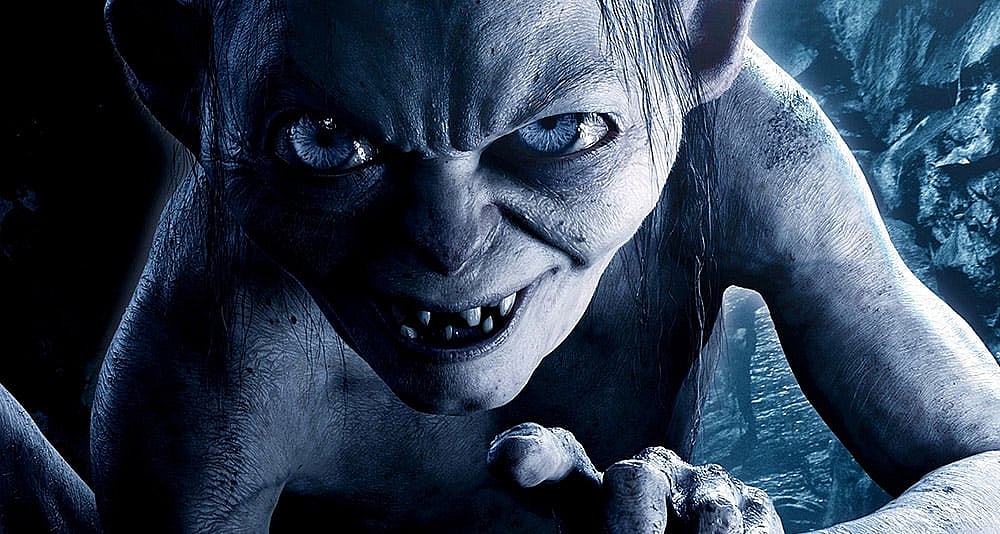
If common sense isn’t enough to realize that people are different and some people are better than others, the Catechism of the Catholic Church makes it explicit, “On coming into the world, man is not equipped with everything he needs for developing his bodily and spiritual life. He needs others. Differences appear tied to age, physical abilities, intellectual or moral aptitudes, the benefits derived from social commerce, and the distribution of wealth. The ‘talents’ are not distributed equally.”
The Catechism further asserts, “These differences belong to God’s plan, who wills that each receive what he needs from others, and those endowed with particular ‘talents’ share the benefits with those who need them. These differences encourage and often oblige persons to practice generosity, kindness, and sharing of goods; they foster the mutual enrichment of cultures.”
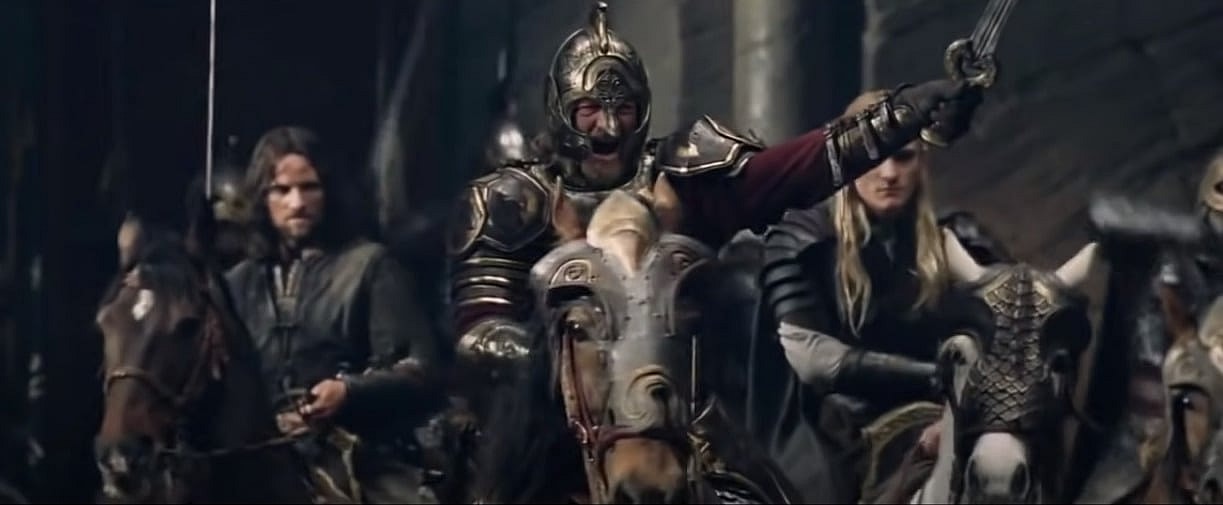
As for Young’s issue with Tolkien wanting to preserve the noble, northern spirit there is absolutely nothing wrong with it. In fact, earlier in the letter he highlights some of the virtues of that noble northern spirit, as seen in the Germans who are his enemies during World War II.
Tolkien writes, “People in this land seem not even yet to realize that in the Germans we have enemies whose virtues (and they are virtues) of obedience and patriotism are greater than ours in the mass. Whose brave men are just about as brave as ours. Whose industry is about 10 times greater. And who are – under the curse of God – now led by a man inspired by a mad, whirlwind, devil: a typhoon, a passion: that makes the poor old Kaiser look like an old woman knitting.”
He would also conclude his letter to his son noting, “Nowhere, incidentally, was it nobler than in England, nor more early sanctified and Christianized.”

Nevertheless, Young continues her attack against Tolkien accusing him of orientalism. She writes, “‘Good’ species and races in Middle-Earth are constructed through references to European cultures (especially northwestern Europe), and the ‘bad’ races are constructed through orientalist stereotypes.”
Tolkien actually addressed this argument when he was alive. In Letter 294 to Charlotte and Denis Plimmer Tolkien provided feedback to them based on an interview they conducted. He specifically critiqued one portion of the interview that claimed “Middle-earth …. corresponds spiritually to Nordic Europe.”
He wrote, “Not Nordic, please! A word I personally dislike; it is associated, though of French origin, with racialist theories. Geographically Northern is usually better. But examination will show that even this is inapplicable (geographically or spiritually) to ‘Middle-earth’.”
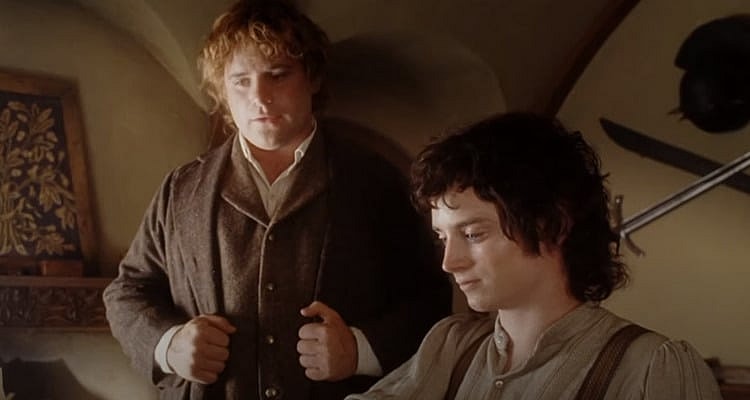
“This is an old word, not invented by me, as reference to a dictionary such as the Shorter Oxford will show. It meant the habitable lands of our world, set amid the surrounding Ocean. The action of the story takes place in the North-west of ‘Middle-earth’, equivalent in latitude to the coastlands of Europe and the north shores of the Mediterranean. But this is not a purely ‘Nordic’ area in any sense,” Tolkien elaborated.
“If Hobbiton and Rivendell are taken (as intended) to be at about the latitude of Oxford, then Minas Tirith, 600 miles south, is at about the latitude of Florence. The Mouths of Anduin and the ancient city of Pelargir are at about the latitude of ancient Troy,” he further explained.
Tolkien continued, “Auden has asserted that for me ‘the North is a sacred direction’. That is not true. The North-west of Europe, where I (and most of my ancestors) have lived, has my affection, as a man’s home should. I love its atmosphere, and know more of its histories and languages than I do of other pans; but it is not ‘sacred’, nor does it exhaust my affections. I have, for instance, a particular love for the Latin language, and among its descendants for Spanish. That it is untrue for my story, a mere reading of the synopses should show. The North was the seat of the fortresses of the Devil. The progress of the tale ends in what is far more like the re-establishment of an effective Holy Roman Empire with its seat in Rome than anything that would be devised by a ‘Nordic.'”

Young apparently decided to ignore that letter from Tolkien. Regardless, she then tries to imply that Tolkien’s depiction of Dwarves are anti-Semitic because Tolkien compared them to Jews using a completely out of context quote from Letter 176 that Tolkien wrote to Naomi Mitchison.
She states, “Tolkien’s letters show the ways that real-world ideas about race influenced Middle-Earth. He wrote ‘I do think of the ‘Dwarves’ like Jews: at once native and alien in their habitations.'”
Later in the article she makes it clear she believes this is anti-Semitism writing, “There is evidence that he revised his representation of Dwarves between The Hobbit and The Lord of the Rings to try move away from anti-Semitic stereotypes.”
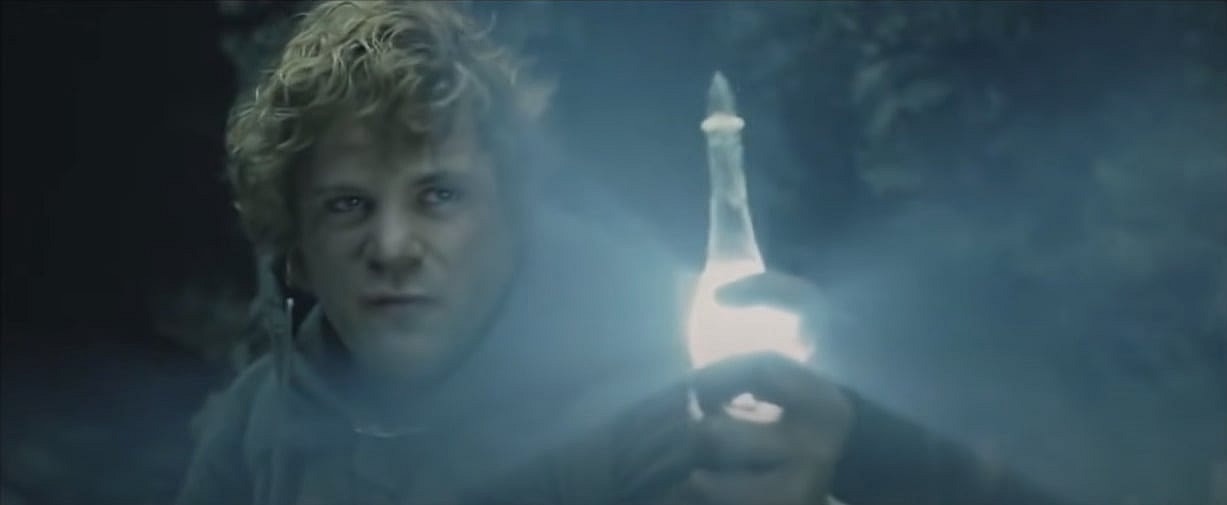
The actual context of the quote is Tolkien discussing the broadcast adaptations of his work and providing his opinion on it. He’s also discussing Jews being displaced from their native country, an historical fact. It’s also probably a reference to the Dwarves being displaced from their homes at Erebor and Khazad-dûm by Smaug and a Balrog.
He writes, “I think poorly of the broadcast adaptations. Except for a few details I think they are not well done, even granted the script and the legitimacy of the enterprise (which I do not grant). But they took some trouble with the names. I thought that the Dwarf (Glóin not Gimli, but I suppose Gimli will look like his father – apparently someone’s idea of a German) was not too bad, if a bit exaggerated. I do think of the ‘Dwarves’ like Jews: at once native and alien in their habitations, speaking the languages of the country, but with an accent due to their own private tongue.”

Young doesn’t stop with Dwarves she then criticizes Tolkien’s depiction of Orcs that he described in Letter 210 to Forrest J. Ackerman, where he heavily criticizes a film treatment for The Lord of the Rings.
Again, she takes Tolkien’s words out of context writing, “In a 1958 letter about a film treatment of The Lord of the Rings he wrote: ‘Orcs are … squat, broad, flat-nosed, sallow-skinned, with wide mouths and slant eyes; in fact degraded and repulsive versions of the (to Europeans) least lovely Mongol types.'”
Here’s what Tolkien actually wrote of Orcs in the letter, “Why does Z put beaks and feathers on Orcs!? (Orcs is not a form of Auks.) The Orcs were definitely stated to be corruptions of the ‘human’ form seen in Elves and Men. They are (or were) squat, broad, flat-nosed, sallow-skinned, with wide mouths and slant eyes: in fact degraded and repulsive versions of the (to Europeans) least lovely Mongol-types.”
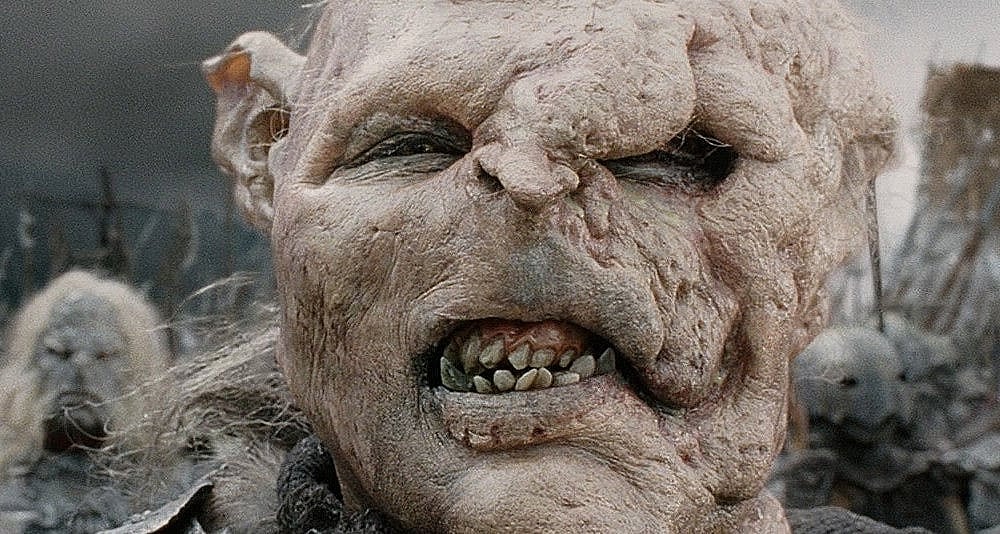
Young then asserts, in her article “The combination of racial stereotypes and hierarchies built into Middle-Earth make Tolkien’s work appealing to racists and a useful political tool for the far-right.”
Despite this, Young also claims, “The need to overcome differences to form alliances and make the world better is a central theme in Tolkien’s writing. Evil is defeated only when different peoples of Middle-Earth, such as Elves, Dwarves and Humans, fight against it together.”
She goes on to claim, “The prosocial values of cooperation and acting for the good of others are embedded in Tolkien’s stories of Middle-earth. They are also at odds with racism and fascism which see “others” as not only different but inferior, dangerous, not to be trusted, that is, as enemies.”
She later concludes, “Tolkien’s imagination was vast and varied, but it was not without limits. The world he created reflected some of the worst aspects of reality with its racist stereotypes and hierarchies.”
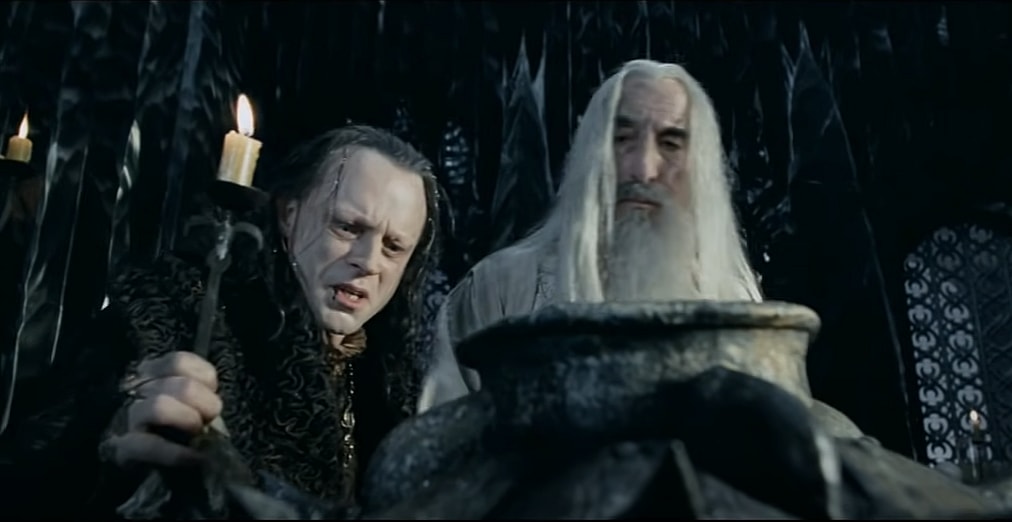
Young’s conclusions are not based in reality and simple common sense exposes them. Her arguments are refuted by J.R.R. Tolkien himself. Not only that, but she — as is often the case with so-called academics criticizing Tolkien of late — had a thesis without any evidence to support it.
She then proceeds to create the evidence by twisting Tolkien’s writing. When the actual quotes are provided and not taken out of context, her entire arguments fall apart and the context she implies exposes her own lack of character.
NEXT: Prime Video Accused Of Buying Praise For ‘The Lord Of The Rings: The Rings Of Power’
